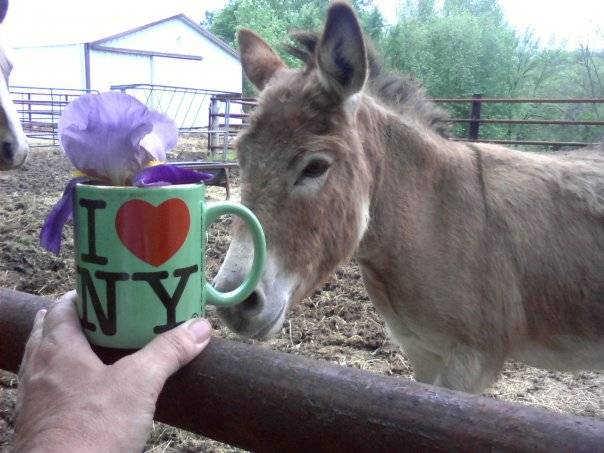
Thirty years ago, the New York Times published an op-ed piece I wrote for the paper. I was a Times stringer at the time and had already written several news pieces, but this Opposite-Editorial Page piece gave me my one and only real New York Times byline.
The piece has grown no less embarrassing in time, but I’m dredging it up for reasons I can’t explain. Misbegotten nostalgia, perhaps. It has aged, with references to Johnny Carson and Crazy Eddie, but on the other hand, Dolly Parton is currently represented on Broadway with the musical Nine to Five and New York streets are probably as clean as Champaign-Urbana’s these days.
At the time, the piece got quite a lot of play. It was reprinted in the Chicago Tribune and on editorial pages coast-to-coast. I remember receiving a letter from someone in Seattle telling me it was the “funniest thing” he had ever read, which made me think that maybe I was fooling myself about my so-called sophistication. Maybe there’s no taking the hay out of the hayseed.
Today, I’m still a substitute teacher and, topping it off, to quote the famous song from Sondheim’s Follies (the revival of which I am proud to say I saw on Broadway), I’m still here.
THE NEW YORK TIMES, SATURDAY, MAY 16, 1980
OP-ED PAGE
“Hicques Ficques Sticques: Nicques Slicques’ Kicques”
by P. Gregory Springer
CHAMPAIGN, ILL. — When I was a teenager, my farm-grown father rented us a car in San Francisco. The rental agent, just making conversation, asked him where we “hailed from.” Without hesitation, my father replied, “Near Chicago,” although our small Illinois town was many miles, and a cultural epoch, from the metropolis. This fib, delivered deadpan, from a man I had all my life observed practicing the most stringent Mennonite principles of honesty and forthrightness, opened my eyes to a pose that I’ve practiced ever since: passing for an urbanite.
Faced with the prospect of resembling a ruralist, even the most unaffected persons will avoid being stigmatized as second-class. I’ve passed in Manhattan, in Los Angeles, in London and Cannes.
Social encounters are a kind of evasive game, entered into with the awareness that a mannerism or speech habit might betray my cover and that someone will ask where I live. Smiling as if it’s perfectly natural to live near creeks and soybeans, I usually confess, hoping that my tone implies some pastoral and literary need and watching nonetheless as everyone present perceives cornstalks sprouting from my ears. The rest of the conversation declines into the quaint. Moments before, I was just another face at a party; suddenly, I’m Jethro Clampett.
It doesn’t matter if you spent your entire childhood splashing near a fire hydrant an Avenue A. Current residence is what counts. Johnny Carson, safely transposed to Hollywood, can casually comment on growing up in Nebraska in his running derogatory jest. The rest of us need excuses.
When John Ford’s Tobacco Road plays at the Museum of Modern Art in New York City, it is hard to determine whether the audience is laughing at the inane hillbilly types or at the film itself.
Television does no better, giving two basic impressions of rusticity: first, the cornball (The Beverly Hillbillies, Green Acres and, most odiously, Hee-Haw); and, second, the nostalgic simple (The Waltons, Little House on the Prairie)
The Midwest takes the slams by seeming blendably bland, yet the Iowa State Fair in Des Moines bears little resemblance to the industrial lakeside of Gary, Ind.
The news media, which emanate from the coasts, are able to distinguish New Jersey from New York, but anything interior is alien, and presumed alike.
After years of maintaining my country closet. Hix Nix Stix Pix.
Country life is neither illiterate nor quiet, reserved for the unambitious and the dull.
It is not a distant and pacifying refuge from the rigors of a city’s artistic spin.
On a recent weekend, I went to an art opening, caught a matinee of a Joe Orton play, finally saw Herzog’s Woyzeck, over-ate at a journalists’ banquet, and found time for a friend’s version of Peking duck and a jog through farms.
Full-time city dwellers let excitement erode and anxiety set in. Many fail to understand or appreciate their own towns.
The part-time city-dweller learns the city out of necessity, unable to risk taking it for granted. He can’t afford the time to be intimidated or frivolous. Many times I’ve given directions to native New Yorkers who are still haphazardly discovering the city after years on the block.
Meanwhile, back on the ranch, my rent is low, mugging is newsworthy, bank lines are mythical, and the public library fulfills my every request for books and recordings without delay.
I prefer hog feed and herbicide commercials to Crazy Eddie. New York has the Belmore Cafeteria, but we have Steak ‘n’ Shake, an exclusively Midwestern chain of cuisine.
The birthmark of farm life is both a romantic and pejorative stain, typified to outsiders by the potential of a Dolly Parton. Such misunderstanding allows certain words, varying in derogation, to be loosely applied without so much as a raised eyebrow. It is still permissible in city media or conversation to say “boondocks,” “outback,” “hinterlands,” “provincial,” “rustic,” “countrified,” “hick,” “jerkwater,” and “one-horse town,” but they all resound of “ghetto” to me.
A rube is, I suppose, someone meant to be manipulated, but withholding respect is the more insidious insult, particularly when unjustly based on a lack of valid image information.
We out here on the prairie wait patiently. Perhaps some benevolent foundation will provide a cultural-exchange grant. We will send you a block or two of spotless streets and a thousand twanging dialects; you send us some subway cars and Soho restaurants.
It might put the whole country into perspective.
P. Gregory Springer, a substitute schoolteacher in Champaign-Urbana, Ill., is a correspondent for Variety.








